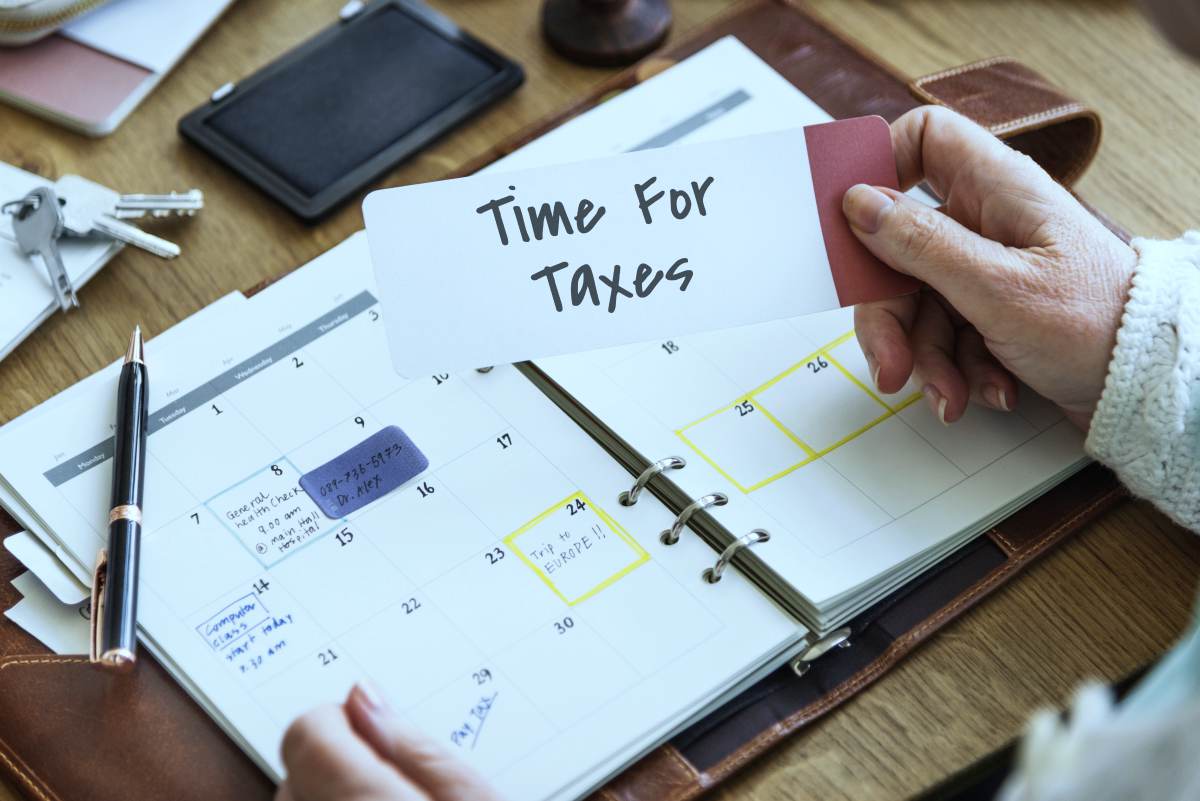Knowing what happens if you don’t file taxes is important for your finances, so here are important questions and answers about paying your taxes.
In this article:
- What Happens If You File Taxes Late?
- When Should I File My Taxes?
- Who Is Not Required to File Income Tax Returns?
- Where Do I File My Late Taxes?
- Why Are Taxes Filed Late?
- How to File Late Taxes?
What Happens If You Don’t File Taxes
What Happens If You File Taxes Late?
Late taxpayers not only get penalties but may also receive disadvantageous filings. The IRS can file your taxes for you, but you will not like how the IRS files tax returns. Usually, the IRS will not write down a lot of credits or exceptions. Therefore, taxpayers end up paying more.
Specifically, late taxpayers can get two specific penalties: a failure to file and a failure to pay penalty. The failure to pay penalty is .5% of your unpaid taxes. The failure to file is 5% per month up to 25% of the whole tax not paid. Maximum penalties for late filing and paying goes up to 50%. Twenty-five percent comes from the failure to file while 25% comes from the failure to pay penalty.
Taxpayers also pay an interest rate. Generally speaking, the IRS goes with the federal short-term rate plus 3%. The federal short-term rate changes every three months. This calculation adds a different layer of complexity to taxes.
Tax refunds do exist, however. Ignorance about tax refund schedules can make your whole financial life haywire. There is an opportunity cost for the tax refunds. It is in the best interest of all parties involved to pay as early as possible. Preparing to file your taxes can save you not only dollars but also time and headaches.
Remember that penalties and interest rates apply when you do not meet the deadline. If the IRS sends you their love letter, you must submit your reply 30 days from the date of the letter. If you receive the letter via mail, you can assume that your deadline is nearer by a week or two.
When Should I File My Taxes?
The IRS always posts a schedule for the filing of taxes. Please note that under the law, April 15 of each year is the final day for filing taxes. For 2019, April 15 is a Monday, so it is best to prepare your tax returns as early as possible. You must be ready by April 15, 2019, for your 2018 taxes.
However, sometimes people forget about taxes until it is too late. For those who have already passed the deadline for two tax years, the IRS takes care of filing taxes.
The IRS then mails a demand letter and notice stating that you owe taxes. The gross tax amount is usually the same tax rate as your last tax return multiplied by two. However, most tax credits or exemptions are not written in your tax return, so there is a higher chance that you will pay more.
The IRS usually opens the filing of taxes early in January. However, there are a lot of factors that make tax filing impractical if done too early. Taxpayers who qualify for an Additional Child Tax Credit may find the IRS processing their returns slower. The reason for the slower speed is the legal need to postpone and review their returns. The IRS, under the law, cannot accept their taxes and must revert the documents back to the taxpayers with a reminder to file on April 15 or the appropriate business day. Other special circumstances include qualifying for an Earned Income Tax Credit or a change in civil status like marriage or divorce.
Recommended earliest tax submission is around the 3rd or 4th week of February, when the IRS finishes the review of special circumstances like the Additional Child Tax Credit or Earned Income Tax Credit of individual taxpayers. Filing too early or too late is detrimental. If you want a safer tax filing process with lesser payments, consider making quarterly tax payments.
Who Is Not Required to File Income Tax Returns?
If the taxpayer is younger than 65 and earns lesser than $12,000 per year, you do not need to file a tax return. The $12,000 threshold can change, as we go with the standard deduction for the year.
If you want a more accurate test, you can take the IRS quiz here. Age, income levels, and status are important factors as well.
For those who have filed late or have made mistakes with tax amounts, making corrections or updating correct information should be a high priority. Late taxpayers can still receive good news. If you have paid at least 90% of the taxes already, the IRS may waive penalties and interest rates. The IRS is not as cold-hearted as most people think. As long as the taxpayer sends a letter explaining the situation, the IRS can meet late taxpayers eye to eye. They are going after taxes, not your financial demise.
Also, remember the statute of limitations for the IRS. For tax refunds, taxpayers only have three years to file. If not filed by then, the tax refund expires. Taxes do not expire, so it is always a good idea to prepare and file early. The IRS will file your tax return if they do not receive any tax returns in 2 years.
Where Do I File My Late Taxes?
You can coordinate with the IRS, who are more than happy to help you file and pay the appropriate taxes. For a more in-depth guide on how to file your tax returns, the IRS File section can be extremely useful.
Another important section includes the request for a tax transcript if you forgot how you filed your taxes. If you want a live person to help you file your tax return, you can call 1-800-829-1040 or 1-800-829-4059 for an IRS employee.
Why Are Taxes Filed Late?
Those who are delinquent with their taxes usually blame forgetfulness. Some believe that they qualify to not file taxes. Others asked for an extension from the IRS early on and either forgot or did not complete the process correctly meaning they may have to start the process from scratch.
Those who are in active military service can get an extension which is typically longer than six months. The U.S. non-military citizens who are outside the country usually only get an extension of two months.
Whatever the reason, filing taxes late can really make your financial life chaotic. Early and consistent tax preparation is key.
How to File Late Taxes?
Once you have received the letter and notice from the IRS, you have two options. You can go to the Tax Court and file a petition within 90 days of receiving the letter. The other option is to file your own original tax form.
Going to tax court is a very complex process. The court proceedings take a lot of time and paperwork. Filing an original tax form is usually a better option, as tax court proceedings may become too expensive. Going the legal route is a good idea only if the tax amounts in question are higher than $100,000 since lawyer fees and lost time can amount to astronomical figures.
Submitting an amended original tax form can save everyone time and effort. The IRS calculations are usually higher as computers automatically calculate the amount minus deductibles. The IRS knows this and is very receptive to amended returns.
Chaos is what happens if you don’t file your taxes. Evade a sticky situation with the IRS by preparing and filing early. Penalties and interest can amount to 47.5% of your total taxes, so vigilance is always recommended.
Have you started preparing your taxes for the year? Do you have other suggestions on how to improve the tax process? Share and discuss with us in the comments section below.
Up Next: 81 Ways To Save Taxes All Year Round



